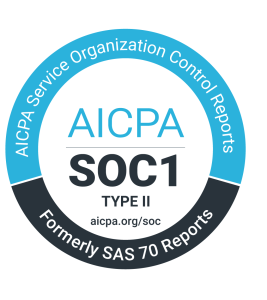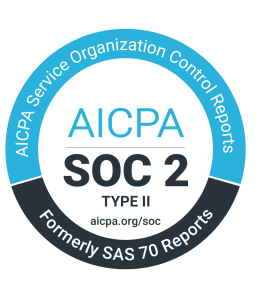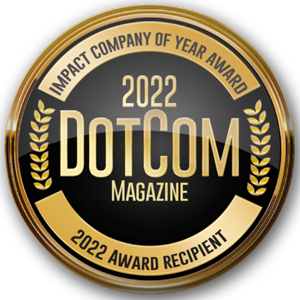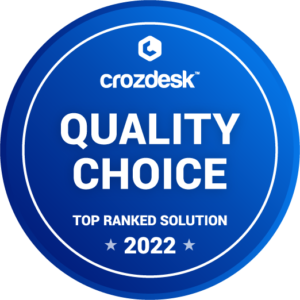In our first article exploring social equity programs in the cannabis community, we learned about Make Green Go, a company that advises and assists social equity applicants in obtaining local and state cannabis licenses. Through planning, training, legal advice, business development, and filing assistance, Make Green Go provides a remarkable service for the citizens of Oakland, California. Government-run social equity programs in cities across the nation are typically understaffed, underfunded, and overwhelmed. As a result, there is an urgent need for professional expertise in helping social equity applicants succeed. Make Green Go is a first of its kind city and corporate partnership in Oakland, and it may prove to be the social equity model for the nation.
It Takes a Family to Build Success
Small businesses are the backbone of the American economy, often requiring owners and employees to wear many hats. With fewer people and resources to get the job done, a smaller company must utilize each team member’s varied skill sets. This is the philosophy upon which Make Green Go operates, and fortunately, it’s a family affair. To learn more about their pursuit of social equity, the BLAZE team recently spoke with a few family members involved.
Make Green Go Founder La Wanda Knox, MBA, has more than ten years of cannabis business consulting experience. Her husband, Zachary, is a partner at the Knox & Ross Law Group, which provides legal services for social equity applicants and other clients. Sisters Jessica Knox, MD, MBA, MPH, and Rachel Knox, MD, MBA, bring considerable medicinal cannabis expertise as the Co-founders of The American Cannabinoid Clinics and the Advent Academy, among other endeavors. Rachel is also the founder of the Cannabis Health Equity Movement and consults on cannabis policy and regulatory issues. Social equity work is vital to all of them. La Wanda explained, “We all work in this industry and have different businesses, but we all share the same values and beliefs for helping people who’ve been harmed by the war on drugs.”
Leveling the Playing Field
At their core, cannabis social equity programs help underserved people of color compete with well-financed individuals and corporations for highly coveted cannabis licenses. Jessica said, “We’ve come to realize very clearly that it’s essential to have a thorough understanding of the cannabis business from different angles. As doctors and clinicians, Rachel and I have seen cannabis regulations and laws roll out in ways that don’t make sense based on what we know about the science. So it’s amazing that our family has this clinical and scientific perspective, but also the legal and business perspective. And really, all of those perspectives are required to build a cannabis ecosystem that makes sense, and ultimately serves its customers and patients in a beneficial way.” Zachary added, “Our businesses support each other, and we’re able to marshal resources quickly and direct them to the industry where it’s needed. I do think it’s a strength that we have a group of ventures.”
Diversity and experience are also crucial for building trust with the social equity applicants who Make Green Go serves in Oakland. Zachary said that “It’s been helpful to build a rapport with the applicants. There’s often some skepticism about what this government program is about, and whether or not it’s really going to work for them. So, anything that we can do to strengthen our relationship and the applicant’s level of trust with the program is very helpful. We can build that trust when they know a little bit more about who you are and where you’re coming from.”
Working with City Hall
La Wanda is quick to point out that building trust with Oakland officials is also critically important. “I would say that our working relationship with the city is fairly intimate,” she said. “Oakland does not have a dedicated cannabis office like you would see in Los Angeles or San Francisco. Oakland’s Equity Permit Program is overseen entirely by the city administrator’s office, which is just one of their responsibilities. Due to the lack of resources, we’ve had to work closely with the city staffers assigned to this project. That being said, if you are working with the municipality, the bureaucracy, and all the hurdles and challenges of public contracting in providing a public service, you’re not going to be able to get away from all those elements,” La Wanda explained.
Zachary elaborated on La Wanda’s thoughts about the need for a positive relationship with city officials. “I would say that the relationship has been positive and good, but we have our ups and downs with the city,” he said. For anyone experienced in dealing with government officials, this is not unusual as issues, challenges, and politics arise along the way, especially for a new public program. Zachary explained that “We have our disagreements about what the program needs, public relations issues, and what direction the program should be going. That’s not always having to do with the city administrator’s office. We’ve raised concerns that often require action by Oakland’s City Council. In the end, it’s the natural business of working with the municipality and all the challenges associated with that relationship. Overall, it’s been very positive,” Zachary said.
Jessica shared another perspective about Make Green Go’s relationship with the City of Oakland. “When the city awarded the contract, it was without the city’s knowledge of what the rest of our family was doing. It wasn’t a focal point of our bid at all. The city was mainly looking for someone who had relevant cannabis experience that had already been providing technical services and could connect with the constituency that they were targeting. La Wanda and Make Green Go checked all of those boxes. Later in that first year, we held our first annual cannabis equity summit, and the city learned about the rest of our family.”
Making Progress One City at a Time
With Make Green Go’s success in Oakland, it’s natural for La Wanda to consider scaling the business for other cities. To accomplish this, she’s very open about working with her family. “As we grow, I want to make them more of an anchor from this point on, because it’s bigger than me. I see the value in continuing to move that momentum forward as we scale into these other cities. That’s a big ask for my family because they’re swamped running their businesses. So to ask them to focus on what I’m doing with Make Green Go, it’s a huge ask, but that’s what I would like to see happen for all of us,” La Wanda said with a gentle, knowing laugh in her voice.
“To La Wanda’s earlier point, these programs are under-resourced,” Zachary remarked. “The people that we serve are under-capitalized by definition and limited in terms of eligibility. The sharks in the industry are looking to come in and take advantage of these same operators. One of the things that I would stress as being important, and where most cities have fallen flat, is that you have to have the advisory services in place before you roll out a social equity program. It has to be there, it just has to be there,” Zachary emphasized.
Rachel and Jessica agree with Zachary’s analysis for creating fair, foundational structures before implementing a social equity program. “It’s important that equity programming is consistent from city to city and state to state,” Rachel explained. “What we don’t want to have happen is people of color to be treated one way in one place and treated differently in another. If we don’t have commonality, solidarity, and a shared understanding of what equity means, it’s going to result in further disparagement, which is exactly what we’re trying to prevent,” she said.
Communities of color who were treated disproportionally harshly and unfairly during the failed war on drugs deserve an opportunity for generational wealth and success. In states that legalized cannabis, dispensaries sell products that once landed people in prison, often for decades. We can’t change the past, but we can change the present and the future. There is an urgent need for professional expertise in helping social equity applicants thrive. La Wanda’s family and Make Green Go are making a difference in people’s lives. It’s about time, and their story, along with many others, need to be told.



